Synopsis
Despite the outstanding talent and astonishing domestic numbers, why Hasan Raza could not become a cricket legend?
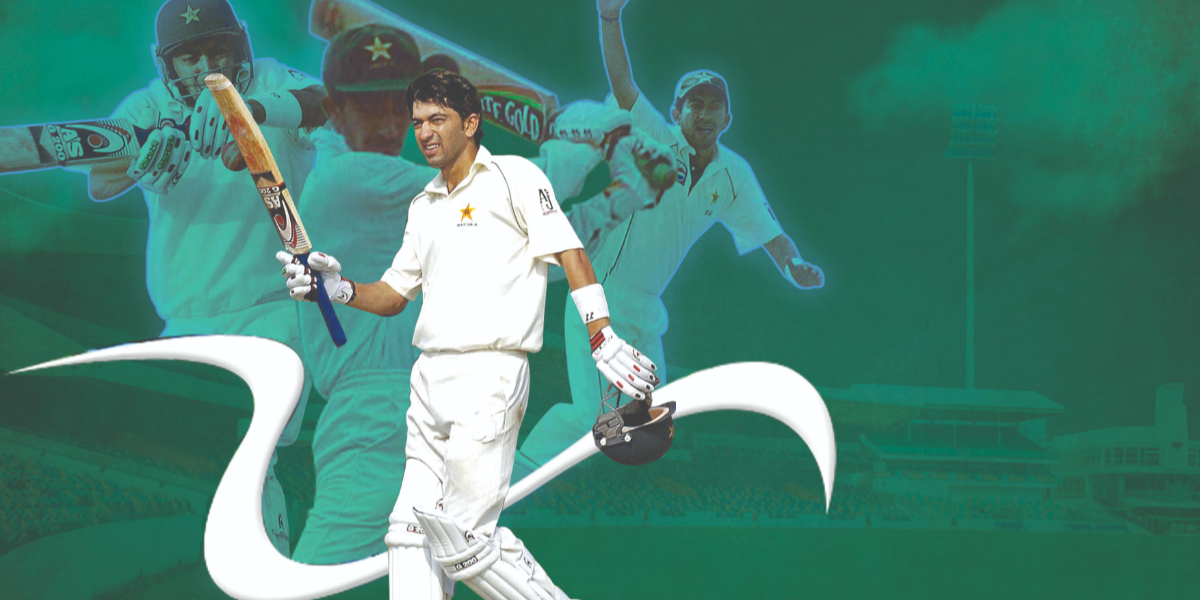
In the mid-90s, the streets of Gulshan-e-Iqbal, a residential area in Karachi, were dominated by two youngsters. Both in their early teens, were extraordinary. One of them was special with the ball at that time due to his phenomenal shoulder speed and the other was spectacular with the bat.
The world knows almost everything about the former. He was known as Shahid Pathan in the locality, now the universe recognises him as Shahid Afridi a.k.a Lala, who announced his arrival by scoring the fastest ton in the history of ODIs and also became the youngest ever ODI centurion.
However, the latter went on to become the youngest ever Test player. He was Hasan Raza.
At the historic ground of Lord’s where even the most experienced cricketers dream of performing well, Raza scored mesmerising 80 runs in the final of the Under-15 World Cup while leading Pakistan.

The budding cricketer used to be an integral part of his school team and also the small club he played for, known as Humdum Cricket Club.
One day, he got to know that there were trials for the first-ever Under 15 World Cup. The kid, who was born and raised in Karachi, travelled all the way to Lahore to appear in the trials at the Gaddafi Stadium. It did not take him long to impress the selectors and was immediately roped in for the campaign.
Raza was phenomenal in the practice games. He scored 70 runs in a trial match and was selected for the main team on the basis of that inning. Recognising his potential, he was named as the captain of the team that had future stars such as Shoaib Malik, Kamran Akmal, Taufeeq Umar, Yasir Arafat and others.

Pakistan were impressive under the leadership of Raza and went on to face the arch-rivals India in the final. Though Raza’s 80-run heroics could not give the Boys-in-Green a win, he rose to prominence and people started talking about him.
When he returned from that successful campaign in England, the then Chief Selector Zaheer Abbas called him up for a side game against the touring Zimbabwe side in Sahiwal. He put up 56 runs in that match, which paved way for him to become the youngest-ever Test player.
“I didn’t even know about the world record,” recalled Raza while talking to Bol News. “I had no idea about what I was achieving.”
The 39-year-old shared that when he first received the call regarding his selection, he hung up, thinking it was some kind of a prank. After half an hour, he got a call again saying they have his tickets and he has to report at Serena Hotel, Faisalabad.

“A dream that people grow up with had become a reality for me at that time,” he said. “I was expecting to play for Pakistan, but not this early.”
When he arrived at the hotel for the breakfast, everyone welcomed him with awe, seeing his tender age. He could not believe his eyes. The ones he idolised till some days ago were welcoming him, sitting with him, talking to him and sharing the dressing room with him. They told him that they have heard a lot about him.
They were not the only ones who were aware of his extraordinary talent. Even before making his First-Class debut in 1996, he was creating noise in the local cricket scene.
Ahmer Saeed, former First Class cricketer and captain of Karachi Whites, said that he often heard of this young lad scoring centuries and fifties here, there and everywhere against experienced bowling attacks.

“He was extraordinary,” reminisced Saeed. “His confidence was unmatched, he had great hand-and-eye coordination and his footwork was different, faster than all his contemporaries. Probably his young age helped him, he was fearless and unmoved of the big names he was playing against.”
He remembers that Raza as a kid was not at par with other players in terms of physical and mental strength, but his skill level and confidence was out of this world, which is why he managed to make up for his deficiencies.
When Raza went into the nets for the first time with the greats of the game, he impressed them with his temperament. “I had programmed myself to only play deliveries that were necessary and leave the rest,” he shared. “Wasim Akram and Waqar Younis were too quick at that time and it was hard to face them.”
The legends, who used to treat the then 14-year-old more like a kid than a teammate, used to admire as he gave so much value to his scalp.
The Test series kicked off against Zimbabwe and the youngster didn’t get a chance to showcase his skills in the first game. He warmed the bench anxiously for five long days.
However, he was called in the playing XI for the second Test, starting on October 24, 1996. The coach Mushtaq Mohammad, who was the youngest-ever Test player before Raza made his debut, handed over him the Green Cap.
On his first international fixture, the 14-year-old came out to bat on the fifth number. He had a decent outing in the middle, scoring 27 runs off 48 deliveries with the help of five boundaries. He got out after edging one to Dave Houghton in the slip cordon off Bryan Strang.
Pakistan won that game by 10 wickets, so he didn’t get to bat in the second inning. After that, it was tough for him as a few vastly experienced injured players, who were injured, made their comeback. Raza was dropped from the side.
He also made his ODI debut in the same month against the same opposition in Quetta. He scored 11 runs in the game, which helped Pakistan get over the rope. He had a comparatively consistent run in the 50-over format than Test cricket, but he could not perform to the best of his capabilities.
He played nine ODIs from October 30, 1996, to September 30, 1997, making 76 runs, while he did not bat in two games.
On the other hand, he got to play the second Test of his career on December 10, 1998, that too against Zimbabwe, where he scored three runs in the first inning and did not bat in the second inning as the encounter was cut short.
After that match, he once again had to wait for another four years to play red-ball cricket for the national side, while he kept playing ODIs and gave a couple of impressive performances here and there.
Eventually, Raza played his last ODI on October 22, 1999, against Sri Lanka in Sharjah, having scored his career-best 77 runs against a well-equipped West Indies attack in his second-last game at the same venue. It was a sudden and tragic end to a career that could be glorious in all aspects.
Meanwhile, he made his Test comeback in 2002 with an impressive performance of 54 and 68 runs in the game against Australia in Sharjah, followed by 46 and 11 runs against Zimbabwe in Harare.
He had a forgettable outing in the next match as he could only manage four runs in the first inning and did not bat in the second. However, his form did not seem to be poor enough to be dropped for the next three years.
He again returned three years later against England in Multan, where he scored a duck and one run. In the next contest, which proved to be his last international appearance, he made 21 runs in the first inning and did not bat in the second.
“When I was dropped after the England series after making a comeback four years later, I knew it was the end for me. I was deeply disappointed and I left the country. It took me three months to get back to normality,” he recalled.
Though ignored by the national selectors, he kept performing in the domestic circuit. He has glorious career numbers of 232 First-Class games with an average of 44.70 and 197 List A matches with 39.95.
“When I got the little opportunity in international cricket, I could not live up to my potential,” he said.
He believes that if the selection committee had backed him and given him confidence, he could have performed well. Instead, he was always on the verge of being dropped from the side even after one poor performance.
“The selection committee dented my confidence too. They labelled me as a domestic performer and not an international material,” he said. “If the board had supported me, I probably had played more than 50 Tests and over 100 ODIs.”
There was little doubt about his potential. He captained a star-studded side of Habib Bank Limited for about 12 years. He was even appreciated by foreign coaches, such as Bob Woolmer.
“Woolmer specially called me to a private hotel to appreciate my performances. He said to me that you have scored so many runs in domestic cricket, you make a comeback in international cricket after every few years, why didn’t you get a consistent chance? I told him, ‘I have become a victim of selectors’ personal liking’,” he recalled.
Raza also believes that he was born in the wrong era. He was kind of unfortunate to make his debut for the national side at a time when their middle-order was rock solid. They had players like Ijaz Ahmed, Saleem Malik, Inzamam Ul Haq, newcomers Mohammad Yousuf, Younis Khan and many others.
“I believe that players of that era could not be replaced by youngsters,” he suggested. “Saleem Malik could not be replaced by a rookie, Inzamam Ul Haq was irreplaceable. I will always regret the era I played in. I didn’t get a chance to grow in international cricket, I never received that support.”
After being overlooked for long, Raza started to look for other avenues to showcase his skills as a cricketer and also to earn some bucks as he had struggled enough due to low income in domestic cricket and not being able to play international fixtures.
In those testing times, a league, which was not sanctioned by the International Cricket Council or the Board of Control for Cricket in India, was announced. It was called Indian Cricket League (ICL) and had legends like former Indian captain Kapil Dev involved in it.

SHARJAH, UNITED ARAB EMIRATES – FEBRUARY 06: Hasan Raza of Virgo Super Kings bats during the Oxigen Masters Champions League match between Gemini Arabians and Virgo Super Kings on February 6, 2016 in Sharjah, United Arab Emirates. (Photo by Francois Nel/Getty Images)
Former captain Moin Khan was recruiting players from Pakistan for the controversial 20-over league. When Raza got to know about it, he approached him and made himself available for the venture.
“ICL was a good decision for me. I was performing well in the domestic but the board was ignoring me constantly for the last three to four years,” he explained. “I used to play league cricket in Belfast, Ireland. When I got to know about the ICL, I thought it was a good opportunity for me as I had struggled enough financially due to a lack of chances in the team. I used to get 25,000 as retention-ship per month in the B, C, and D category. I realised that I was getting old too, so I thought it was a good chance.”
The action-packed, yet controversial league, continued from 2007 to 2009. The league also featured Pakistan stars like Mohammad Yousuf, Abdul Razzaq, Imran Nazir, Imran Farhat and others.
At the beginning of the first season of the tournament, it was announced by the authorities that none of the players that feature in that unsanctioned event will play international cricket.
However, a vast number of players again played international cricket that too mainly on the performances they put forth in that event, including Pakistan’s Yousuf, Razzaq and Nazir, but Raza, despite being a star player of the tournament, did not earn a call.
Raza went to Dubai to play and promote Bukhatir Cricket League in 2014. He was a prominent star in the league and also planned to settle in the country. He aimed to represent the United Arab Emirates at the international stage.
He settled there for about five years and when he was on the verge of representing another country in international cricket, an Al-Jazeera documentary accused him of match-fixing and that plan collapsed.
The once rising star, who had the potential to outclass all his contemporaries, could not shine to its brightest. He was doomed even before the world could appreciate its light.
Different people give different reasons for Raza’s failure to make it big. The former skipper and wicketkeeper-batter Rashid Latif believes he made his debut way too early.
“I think he played too early,” said Latif. “He, Shadab Kabir and others got the stamp too early, which is a wrong practice in Pakistan.”
Saeed seconded Latif’s words and stated that Test cricket is not only about raw talent, there are other factors also that play a key role.
“In cricket, especially in Test cricket, experience has a huge role to play,” he said. “It’s not only about talent, there is a lot that you learn in First-Class cricket, such as how to handle different situations, how to score on different wickets and similar other things.”
However, Raza thinks differently and believes that it was the perfect time for him to play international cricket and if he was backed by the authorities, he would have become a superstar.
“The demand in sports is for talent and I had extraordinary talent, so it was the right time for me to play,” he maintained.
The former middle-order batter also backed Latif’s words and said that players need to be groomed, quoting the example of how Australia nurture young talent.
“We often ask who will come after Babar Azam and we don’t know it. On the other hand, Australians know who will replace whom in the coming years.”
He also criticised the standard of Pakistan’s domestic cricket and claimed that it is not good enough to produce world-class players. He added that it was only he and Asad Shafiq who were consistently performing in the circuit during that era.
“I was told to play domestic, but honestly, our domestic cricket did not produce any players. I was the only one performing extraordinarily well in the circuit,” he said.
In another theory, it is claimed that Raza’s career could not flourish because he was vulnerable to short-pitched deliveries.
“System actually failed him,” said Saeed. “Some people had reservations that he doesn’t play the short ball well.”
According to Saeed, he does not believe this narrative as Raza was an extraordinary talent and he would have eventually found a way to negotiate with the short stuff.
“It could have been ignored. There are numerous quality players in the world who do not play the short ball well,” he said. “If it wasn’t the only cause of his brief career, it was portrayed as one of the major causes.”
Moreover, the former wicketkeeper-batter alleged that these are only excuses that selectors and other people in power make to drop a player.
“It is the case with everyone, no one in Pakistan has the perfect technique; however, everyone manages it. Players like Misbah Ul Haq, Mohammad Yousuf, Faisal Iqbal and even myself have managed it,” said Latif. “When you have to drop someone, you blame their fielding, technique or attitude.”
A career that could be as decorated as any other legend of the cricket world was marred by controversies and cut short due to unknown reasons.
“Players who played U19 and U15 with me became stars, but I couldn’t. Why? I captained HBL for 11 years and captained Karachi Whites for a long time, but I couldn’t play long for Pakistan. Why?” these are a few questions that Raza still asks and these are the few questions that Pakistan cricket fans will never find answers for.
Catch all the Breaking News Event and Latest News Updates on The BOL News
Download The BOL News App to get the Daily News Update & Live News.






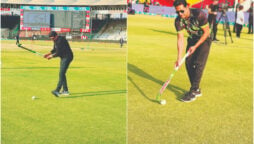
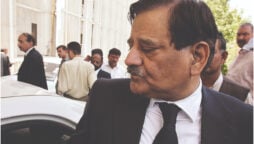
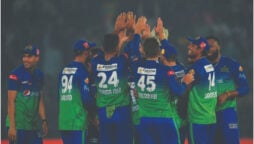

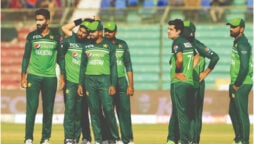

 Read the complete story text.
Read the complete story text. Listen to audio of the story.
Listen to audio of the story.